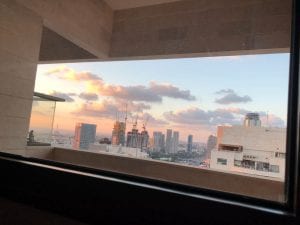The more I learn about the Middle East, my image of what I want to do in regards to the region becomes less clear because matters are so deeply complex. It was necessary for me to examine my relationship to Israel as well as Jewish and Palestinian history, to best assess my place in the Israeli-Palestinian conflict. I often question myself if it is even my place to be studying the Middle East or if it is simply an extension of colonialist powers who saw themselves gifting structural reform to a ‘backwards people’. Though much of what I heard and learned was discouraging, what I’ve come away with is that I ultimately believe in personal connections rather than institutions as the agents for change. I believe under the right circumstances two people can come to some understanding of one another, they can humanize one another in their minds. It is clear from particularly from my experiences that the narrative of fear in Israel is overpowering and it justifies the separation enforced in every sense, (i.e. The Occupation, Mizhrahim residing largely in the south of the country, Arab cities isolated in the North, Arabs only speaking with Arabs on TAU Campus and Jews with Jews).
The experience I hold most dear to me is when I attended a Palestinian wedding in the West Bank. The mere fact that I was able to then share this story with Israelis with a tone of warmth truly challenged many Israeli’s perspectives and ignited necessary conversations of which I hope to have more.

